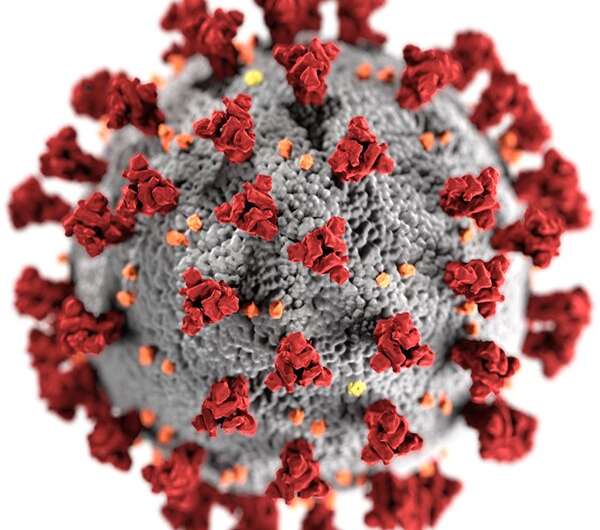Delaying second Pfizer-BioNTech dose could leave cancer patients with insufficient immunity

More than half of cancer patients receiving a single dose of the Pfizer COVID-19 vaccine may be left with little protection against the virus, according to a new preprint from researchers at the Francis Crick Institute and King's College London.
Data from the world's first reported trial to examine the level of immune protection after the Pfizer-BioNTech vaccine in cancer patients, shows that anti-SARS-CoV-2 antibody responses at week three, following the first dose of the vaccine, were only 39% and 13% in the solid and blood cancers respectively, compared to 97% in those without cancer.
The study, called SOAP, also reports that when the second dose of the vaccine was given three weeks after the first dose, the immune response improved significantly for solid cancer patients with 95% of them showing detectable antibodies to the SARS-CoV-2 virus within just two weeks. By contrast, those who did not get a vaccine boost at three weeks did not see any real improvement, with only 43% of solid cancer patients and 8% of blood cancer patients developing antibodies to the Pfizer vaccine at five weeks compared to 100% of healthy controls.
This evidence of vaccine responses in cancer patients suggests that a gap of twelve weeks between doses of the Pfizer-BioNTech vaccine could leave many cancer patients vulnerable to serious COVID-19.
This preprint has not yet been peer-reviewed by independent scientists. However, the research team are recommending an urgent review of the vaccine strategy for clinically extremely vulnerable groups. It is still important for cancer patients to take up the vaccine and boosters when offered to them, as low protection is an improvement on no protection.
As part of the SOAP trial, researchers enrolled 151 cancer patients and 54 healthy controls. Of these, 47 received two doses of the Pfizer-BioNTech vaccine (BNT162b2), administered 21 days apart at Guy's and St Thomas' NHS Foundation Trust, King's College Hospital and Princess Royal Hospital, Bromley. However, in line with changes in national government guidelines, those participants who had not received their second shot by December 29th, 2020, received only one dose within the study period with a planned follow up booster 12-weeks later.
The results have implications not just for cancer patients but for those around them, as a three-month period of poor protection could allow the virus to spread among those caring for the patients, and may even create conditions favoring the emergence of new mutant strains.
The study's senior authors, Dr. Sheeba Irshad from King's College London and Professor Adrian Hayday from King's College London and the Francis Crick Institute, London, believe that there should be urgent re-evaluation of UK policy for the dosing interval for this vaccine for all cancer patients, and likewise for many other high-risk groups of patients with weakened immune systems.
Professor Adrian Hayday from The Francis Crick Institute and King's College London said: "The vaccine is very impressive in its impact on healthy individuals and our study shows that it can clearly bring immense benefit to cancer patients too, but in most cases this is only after boosting.
"Cancer patients should be vaccinated quickly but they also be boosted quickly and their responses, particularly those of blood cancer patients, should be intensively monitored so that those in their environment—family, friends, carers—can be confident of their environment.
"These insights were only gained by way of truly intensive, selfless commitment of many young research fellows working together as a team. In making these efforts we have been brilliantly supported by our host institutions."
Dr. Sheeba Irshad, a Cancer Research UK clinical research fellow from King's College London, said: "Our data provides the first real-world evidence of immune efficacy following one dose of the Pfizer vaccine in immunocompromised patient populations. We show that following first dose, most solid and hematological cancer patients remained immunologically unprotected up until at least five weeks following primary injection. Our data clearly shows that the poor one dose efficacy in cancer patients can be rescued with an early booster at day 21.
"Based on our findings, we would recommend an urgent review of the vaccine strategy for clinically extremely vulnerable groups. Until then, it is important that cancer patients continue to observe all public health measures in place such as social distancing and shielding when attending hospitals, even after vaccination."
The SOAP trial will continue to follow cancer patients post vaccination for up to six months.





















